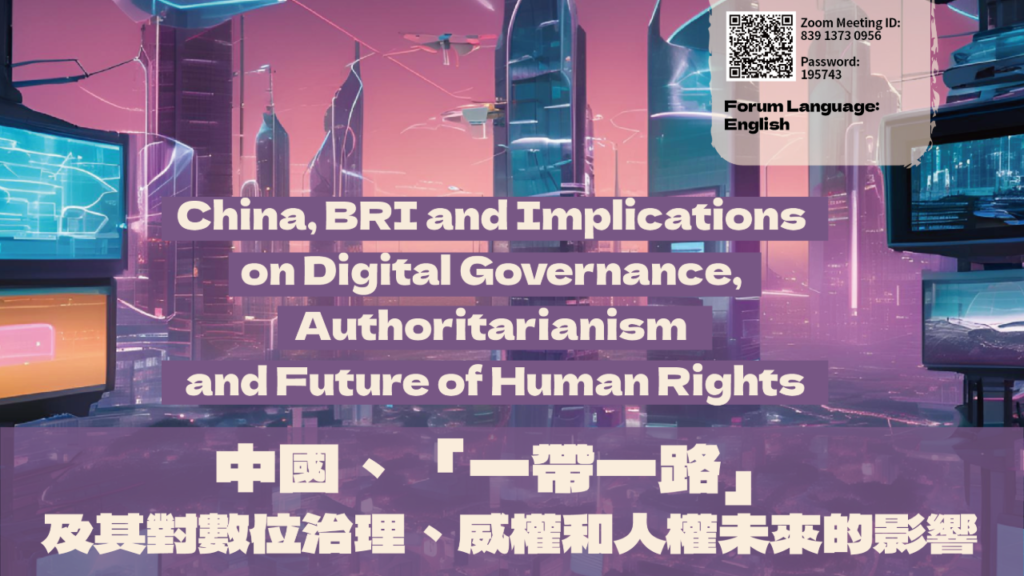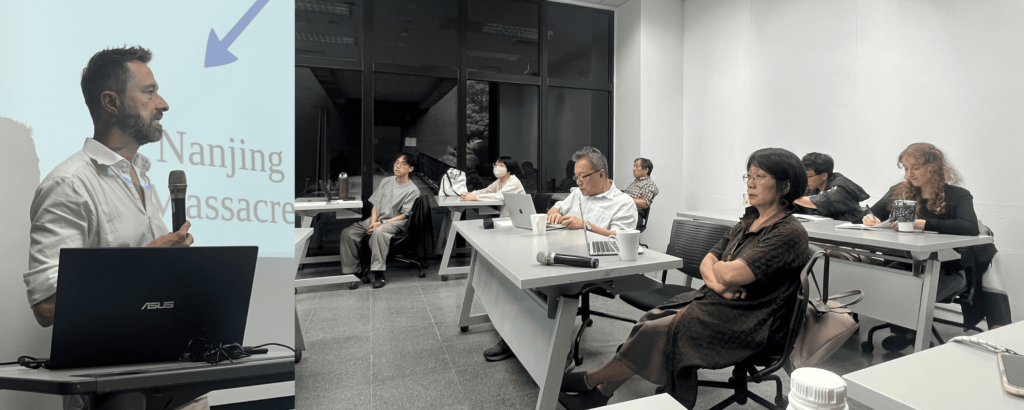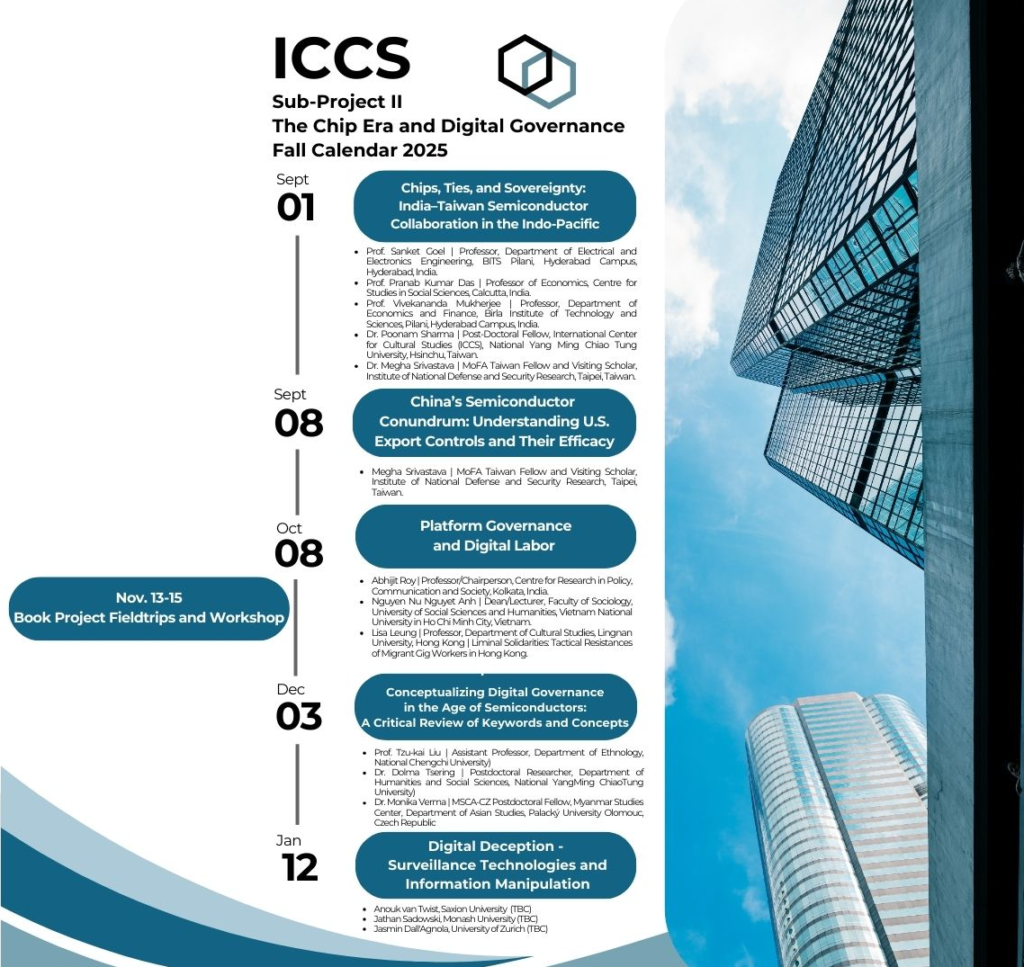Events

January|China, BRI and Implications on Digital Governance, Authoritarianism and Future of Human Rights
Date: 2025-01-17
Time: 14:00 – 16:30 (Taipei Time)
Join the Meeting via link: https://us02web.zoom.us/j/83913730956……
Zoom Meeting ID: 839 1373 0956 / Password: 195743
Forum Language: English
Moderator: Dolma Tsering (Postdoctoral reseracher, International Center for Cultural Studies, National Yang Ming Chiao Tung University)
Abstract
The rapid evolution of digital technologies and connectivity, coupled with a new industrial revolution, has reshaped the societal landscape and geopolitical dynamics of major powers. Data is now regarded as the ‘new gold’, whilst control over critical technologies has become a geopolitical asset. Although the United States has maintained its leading position in digital power, China has emerged as a formidable competitor over the past decade. Under President Xi Jinping’s leadership, China has been engrossed in developing a comprehensive digital grand strategy, dubbed ‘Digital China’. This initiative aims to expand China’s digital infrastructure both domestically and internationally, encompassing the development of 5G networks, provision of technical assistance, and installation of CCTV cameras. Whilst Beijing’s expansion of digital infrastructure through the Digital Silk Road has helped bridge the digital divide in African and South Asian nations, it has also sparked serious concerns regarding surveillance, China’s access to and control over data, and technological standards. This expansion has raised alarms about potential espionage, coercion, and monitoring of dissidents and refugees, thereby threatening human rights protection. This online discussion invites scholars and activists from the Global South to critically examine China’s digital footprint and its implications for human rights. It explores how digital technologies are reshaping logistics, infrastructure, and governance mechanisms, such as Smart Cities and CCTV surveillance systems, and considers how cyber networks and data collection enhance social control in a complex environment.
Topics
- The Digital Silk Road: China’s Infrastructures of Repression
Michael Caster, Head of Global China Programm, Article 19 - Xi’s Expansion of Digital Repression of Tibetans
Lobsang Gyatso Sither, Director of Technology, Tibet Action Institute - How China’s Digital Governance Erodes Human Rights and Freedoms in Hong Kong
Cheng Sze Lut, Former vice-chairman of the Labour Party in Hong Kong. Since the imposition of the National Security Law, he has lived in exile in Taiwan - Nepal-China Digital Connectivity: BRI and Beyond
Mahesh Kumar Kushwaha, Research Fellow, Centre for Social Innovation and Foreign Policy, Nepal
–
Organizer:
International Center for Cultural Studies, National Yang Ming Chiao Tung University
MOE-SPROUT 2.0, Conflict, Justice, Decolonization: Asia in Transition in the 21st Century
Research Cluster
Sub-project II: The Chip Era and Digital Governance; Principal Investigator: Joyce C.H. Liu
Sub-project III: Migration, Unequal Citizens, and Critical Legal Studies
Principal Investigator: Joyce C.H. Liu, Yu-Fan Chiu, Mei-Lin Pan
–
Event Report
On January 17, 2025, the International Center for Cultural Studies held an online forum, “China, BRI and Implications on Digital Governance, Authoritarianism and Future of Human Rights,” dedicated to the exploration of China’s digital influence, its effects on social control, digital governance, and human rights in the Global South… (Read more)
312464001






